Description
ABSTRACT
Testing the Limits of Maritime Claims in Arrest of Ship and Other Res in Nigeria: Re: Stallionaire Nigeria Limited v Acorn Petroleum Plc
‘Nonso Azih*
The international carriage of goods by sea is generally fraught with challenges relating to the competing interest of consignees and other cargo interests, charterers and shipowners. These challenges give rise to adjudication and/or arbitration to resolve issues relating to terms, conditions, rights and obligations of parties within a given jurisdiction or across different jurisdictions. Against this backdrop, the essence and strict application of admiralty jurisdiction in resolving maritime disputes remain essential, particularly as it relates to in rem maritime claims that give rise to the arrest of a ship or other res. This paper re-examines and re-emphasizes the principle that only a maritime claim, whether general or proprietary in nature, as recognized under relevant laws, can or should ground an arrest of a ship or cargo in Nigeria. The author argues that a strict observance and application of procedural and substantive elements of admiralty jurisdiction as it relates to maritime claims is sine qua non for effective maritime law practice and dispute resolution.
Keywords: Carriage of Goods by Sea, Maritime Claims, Arbitration, Maritime Disputes, Admiralty Jurisdiction
INTRODUCTION
Essential to the practice of maritime law is an understanding of the procedure that provides pre-judgment security for claims and post-judgment execution where a suit is successful. Due to the mobile nature of ships and the increased turnaround time at ports, given the advancement in ship technology and port efficiency, pre-judgment security is very crucial to the maritime creditor who is faced with the threat of being unable to recover his debt from an impecunious or unscrupulous Defendant should the Defendant’s ship sail away from jurisdiction without the debt being settled or satisfied. The possibility of post-judgment execution by way of judicial sale of the arrested ship or other property remains a crucial consideration for maritime creditors/Plaintiffs concerned about the solvency of their debtors and their willingness to settle claims.
In Common Law nations like Nigeria, whose maritime law is primarily derived from the admiralty laws of England; the action in rem is the basic procedure by which creditors or claimants rely on for pre-judgment security and post-judgment enforcement of award or judgment that may be given by the court or an arbitral tribunal where security is obtained pending arbitration.1
* Principal Counsel, Azih & Azih, Legal Practitioners, Ikoyi, Lagos Nigeria.
- See the Admiralty Jurisdiction Act, 1991, Cap A5 LFN 2004, s 10.

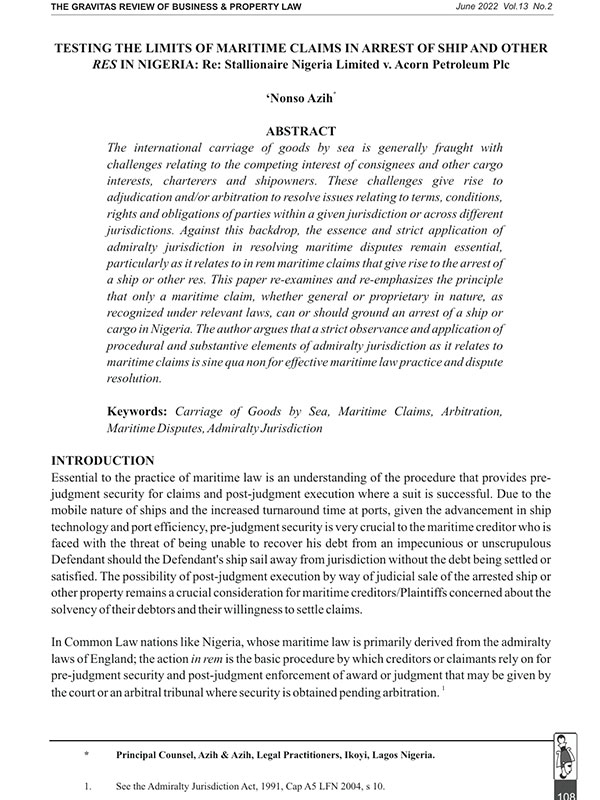
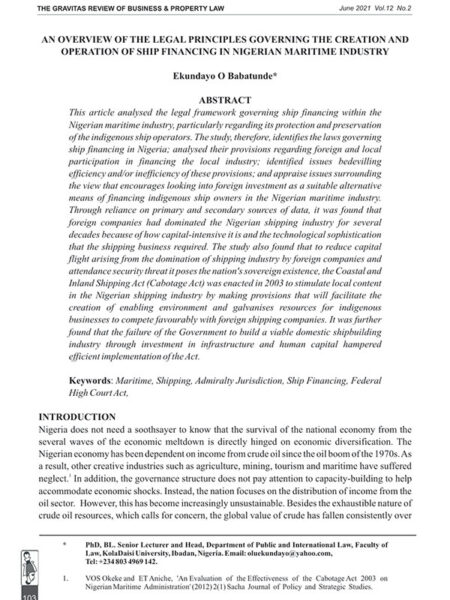
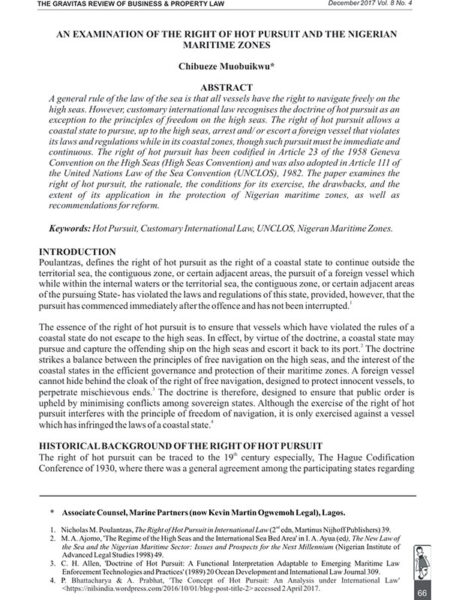
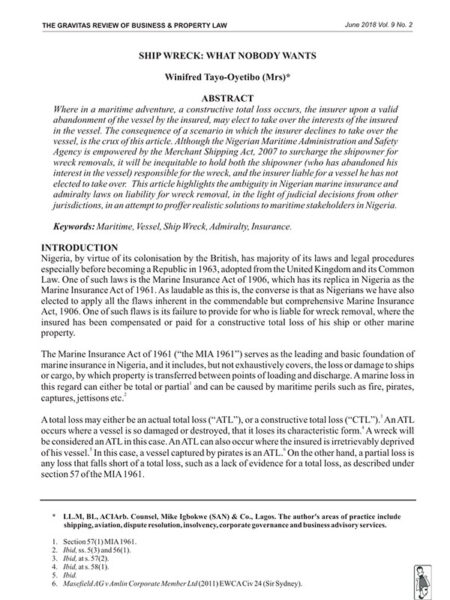
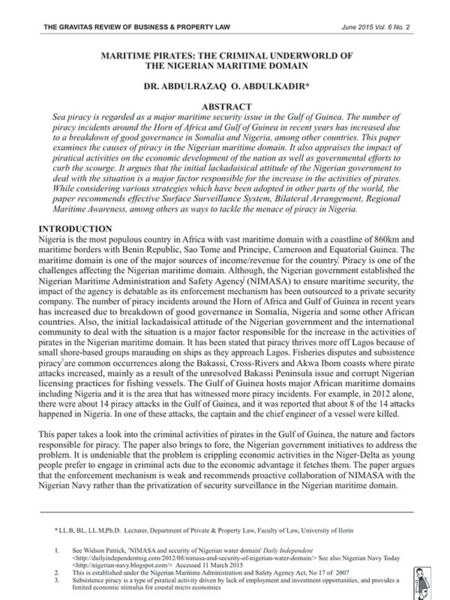


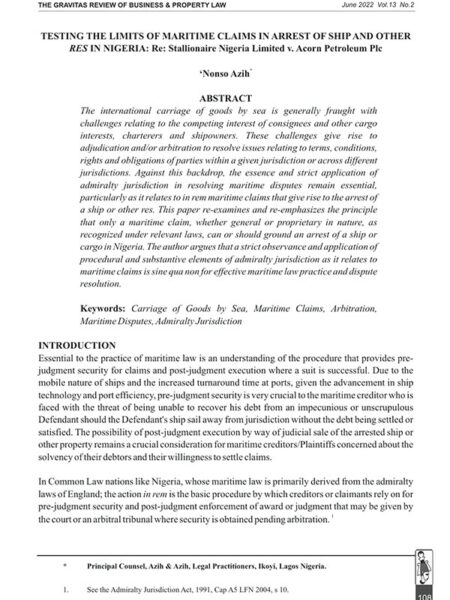
Reviews
There are no reviews yet.